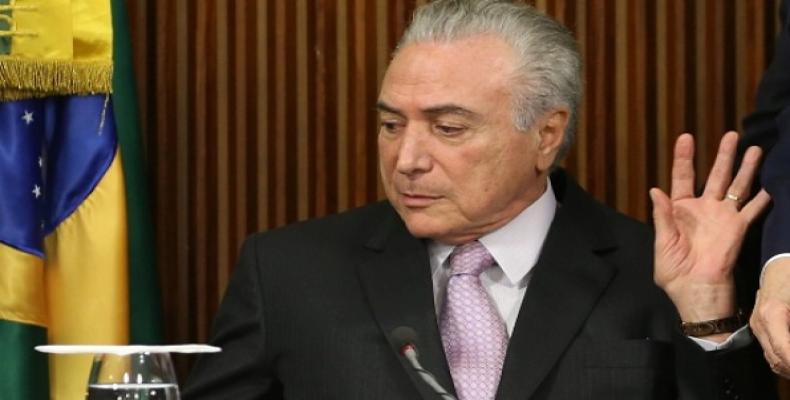Brasilia, December 22 (RHC)-- The Brazilian government is attempting to scrap two important environmental regulations which environmental and Indigenous activists say will have a disastrous effect on efforts to fight climate change and put Indigenous communities in danger.
The first proposal, backed by a number of figures in Michel Temer’s coup-imposed government, sees that environmental licenses on Indigenous reserves that are now issued by the federal government will be handed over to states and even private companies.
Heavy polluting industries such as farming and forestry would then be exempt from current licensing laws. States would be authorized to choose the terms of the licensing agreements for companies operating under their jurisdiction.
More than 250 representatives including NGOs and individuals signed an open letter opposing the change, arguing that there has been a lack of consultation and the proposal would only increase environmental destruction.
Mauricio Guetta, a lawyer for Socio-Environmental Institute, told The Guardian that the changes are “the most worrying regressions of our recent history,” and would make it near impossible for Brazil to make its climate change target from Paris COP21, which includes ending illegal deforestation by 2030 and significantly cutting greenhouse emissions.
The proposal, which has already been stalled for years has been causing political division. Mauro Pereira, a congressman from Temer’s party pushing for the change, says that the laws need to be overhauled to promote business. Others from the government environmental bodies have warned that the change would create an “environmental civil war” as states would compete against one another to offer the weakest restrictions. Opposition politicians say that Temer's government is bowing to the interests of the “Ruralistas,” a block of pro-agribusiness who advocate the change.
The second planned change includes a draft of a government decree that would affect Indigenous reserves within Brazil. Under PEC 215, new reserves would only be permitted if Indigenous groups had occupied the areas in 1988 when the country’s constitution was signed.
Indigenous people who had previously been expelled from areas would not be eligible and activists say it would open up these lands to corporate exploitation, and threaten the very survival of Indigenous groups as well as squandering any chance for traditional owners to have their land returned.
“This is a clear violation of Brazilian and international law, which could result in the destruction of whole peoples,” said Indigenous activist group Survival International. The proposal comes on the back of data that shows that 2016 has devastated the Amazon rainforest, where deforestation increased by 29 percent from 2015 levels.
Brazil's Coup Government Moves to Scrap Environmental Regulations


